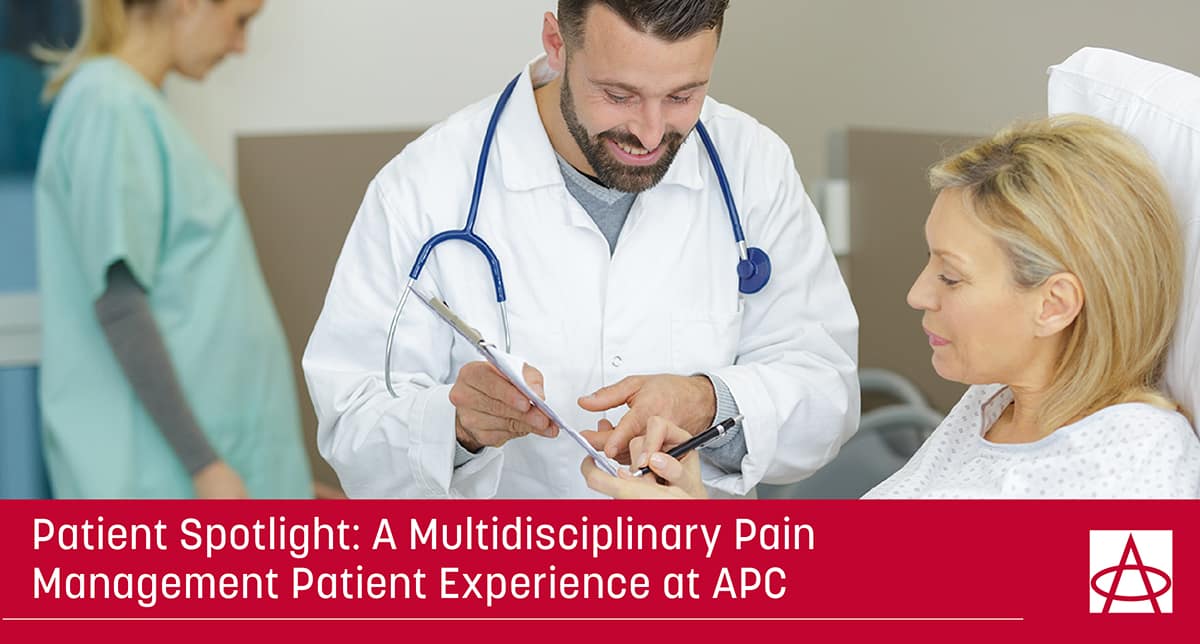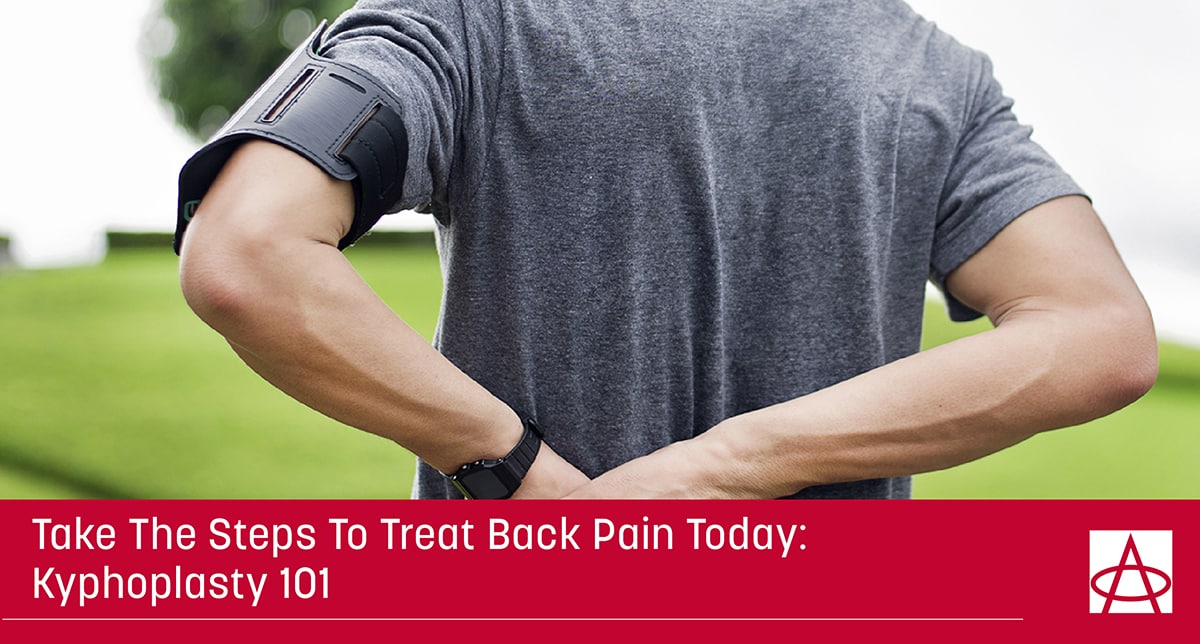Patient Spotlight: A Multidisciplinary Pain Management Patient Experience at APC
By Hope Piper I made the switch from my previous clinic to Advanced Pain Care about ten years ago and it’s been one of the best decisions I ever made. Back in 1998, I was in a serious car accident and my back has never been the same. I was in a lot of pain when I first visited Advanced Pain care, who suggested pain management. At my previous clinic, the treatment plan revolved around medications. There weren’t many other options offered to me and I got the sense that they weren’t truly interested in getting to the bottom of why I
How To Manage Pregnancy and Chronic Pain
By Advanced Pain Care Pain management has to change when you're pregnant, but it doesn’t have to be a scary prospect. Many pregnant pain patients actually find that their chronic pain improves during pregnancy. About half of the people we see find that their pain levels are actually better in pregnancy and half the people are about the same. Of course, towards the end of pregnancy, everyone has a little bit of pregnancy pain. The baby is getting really big, so there’s naturally a lot of stress on the body. For those that are in pain management already, their treatment plans have
Being An Anesthesiologist At A Chronic Pain Management Clinic
By Rudy Garza, M.D., Anesthesiologist As an anesthesiologist, I am not just an expensive bartender serving up margaritas or special cocktails. Being an anesthesiologist is a little more complex than the common stereotype. As an anesthesiologist, my job starts way before the surgery and extends past the time you leave the recovery room. Throughout the evolution of the specialty, an anesthesiologist has transformed themselves into perioperative medicine physicians. This means that I am there before, during, and after surgery, getting to know a patient and caring for them throughout the process. Coordination of post-operative care begins with a good preoperative
A Day in the Life of a Multidisciplinary Pain Management Clinic
By Summer Urbanczyk, Chief Nursing Officer As APC’s chief nursing officer, I currently manage clinical operations for our outpatient surgery centers. I oversee all of the clinical day-to-day, as well as our anesthesia department within our surgery center. I manage the schedule, staffing, and approving procedures. At one surgery center alone, we do about 1,200 procedures a month, so managing all of these moving parts can get challenging! However, before I was on the administrative side at APC, I was a nurse practitioner. As someone who’s seen both sides of the clinic’s operations, I’m in a unique position to appreciate
Take The Steps To Treat Back Pain Today: Kyphoplasty 101
By Victor Taylor, M.D. Pain is the most common reason a person goes to see their doctor and spinal pain is one of the most prevalent complaints seen. There are multiple causes of spine pain and treatment can range from over the counter medications, physical therapy, chiropractic care, interventional techniques or surgery. Understanding the underlying cause of your pain is essential to developing the right approach to treatment. A common cause of spinal pain in patients over fifty is compression fracture. A compression fracture occurs with a spinal bone partially collapses. This is most common in patients with osteoporosis or thinning of
The Importance of Ritual in Chronic Pain
Written by Kira Gavalakis Interviewee: Robin M. Hendershot, LPC At APC, we say, “the pain stops here.” But many might not know that means even beyond the walls of the clinic. It’s clear to me that APC shows such an involvement and dedication in giving their patients the agency to manage their pain both inside and outside of the clinic walls. Below, I speak with Robin Hendershot, LPC, about how she helps manage patients’ pain beyond the office, and the importance of creating rituals when dealing with chronic pain. Firstly, are there natural ways to help alleviate pain when we’re at home? There are a lot
Meet Our Newest Doctor: Dr. Hellman, Chronic Pain Specialist
By Dr. Matthew Hellman My name is Dr. Matthew Hellman, and I am so excited to be one of APC’s newest practitioners. I specialize in interventional pain medicine, where I use a multimodal approach to help patients manage their chronic pain. Whether this is through surgical interventions or implants, opioid or non-opioid medicine, or working with physical therapists and chiropractors, I am committed to attacking my patients’ pain from all sides, to find what works for them. Although I’ve only been with Advanced Pain Care for about six weeks, I can already say that it’s one of my favorite clinic experiences I’ve
How Chronic Pain And Mood Are More Connected Than You Think
By Advanced Pain Care Chronic pain can be a really frustrating condition to live with, and we want to do everything in our power to help you get some relief. We know it comes in all shapes and sizes, but one thing is almost always certain; that your chronic pain and your mood work hand-in-hand. One of the reasons I love working here at APC is because we’re a multidisciplinary pain clinic, meaning we have multiple specialties all under one roof. This means that instead of a patient coming to us, but then us having to re-route them to another clinic, most
How Movement Helps With Chronic Pain Management
By Jeffrey Higginbotham, M.D. Years ago, a study was done where scientists stripped all of the muscles off of a cadaver spine to test how much weight the human spine could really handle just with the ligaments and joints alone. How much weight did it take to break the spine? Just 10 pounds. That means that without the muscles, the spine can barely support our bodies. Knowing the importance of the muscular system shows us a bigger picture: that maintaining our muscles is one of the most important parts of ensuring that our bodies are given everything they need to give us
All About Fibromyalgia Pain
By Samuel B. Pegram, M.D. Sometimes, pain isn’t because of an injury. It’s because of your brain. Fibromyalgia pain is an interesting concept, because it’s actually a neurological issue. Years ago when doctors started learning about fibromyalgia, we weren’t aware that it was a neurological problem. Because people had pain in areas that weren’t their joints, doctors thought it was a muscular problem. And in fact, many years ago, we would actually go about biopsying some areas of tenderness, looking for inflammatory cells that weren’t actually there. Fibromyalgia was called fibritis for a while, because doctors thought it was inflammatory. But eventually, we came











